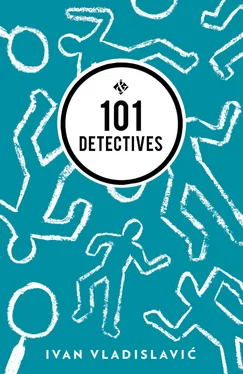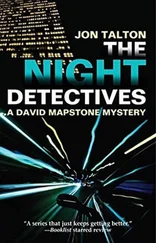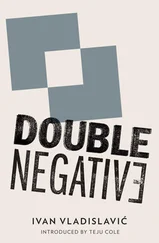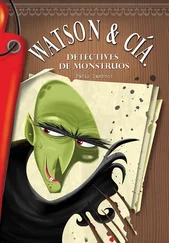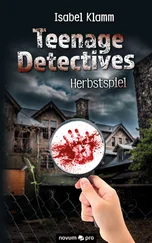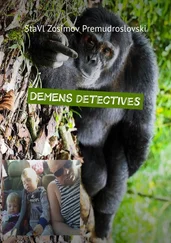Ivan Vladislavic - 101 Detectives
Здесь есть возможность читать онлайн «Ivan Vladislavic - 101 Detectives» весь текст электронной книги совершенно бесплатно (целиком полную версию без сокращений). В некоторых случаях можно слушать аудио, скачать через торрент в формате fb2 и присутствует краткое содержание. Год выпуска: 2015, Издательство: And Other Stories Publishing, Жанр: Современная проза, на английском языке. Описание произведения, (предисловие) а так же отзывы посетителей доступны на портале библиотеки ЛибКат.
- Название:101 Detectives
- Автор:
- Издательство:And Other Stories Publishing
- Жанр:
- Год:2015
- ISBN:нет данных
- Рейтинг книги:4 / 5. Голосов: 1
-
Избранное:Добавить в избранное
- Отзывы:
-
Ваша оценка:
- 80
- 1
- 2
- 3
- 4
- 5
101 Detectives: краткое содержание, описание и аннотация
Предлагаем к чтению аннотацию, описание, краткое содержание или предисловие (зависит от того, что написал сам автор книги «101 Detectives»). Если вы не нашли необходимую информацию о книге — напишите в комментариях, мы постараемся отыскать её.
and
, invites readers to do some detective work of their own. Each story can be read as a story, but many hide clues and patterns. Whether skewering extreme marketing techniques or constructing dystopian parallel universes, Vladislavic will make you look beyond appearances.
101 Detectives — читать онлайн бесплатно полную книгу (весь текст) целиком
Ниже представлен текст книги, разбитый по страницам. Система сохранения места последней прочитанной страницы, позволяет с удобством читать онлайн бесплатно книгу «101 Detectives», без необходимости каждый раз заново искать на чём Вы остановились. Поставьте закладку, и сможете в любой момент перейти на страницу, на которой закончили чтение.
Интервал:
Закладка:
Irritated groans and nervous giggles. Then a booming voice asked if everyone was all right.
In those first uneasy moments, she thought about the uses of stories in emergency situations and the storyteller’s role as first responder and counsellor. She was familiar with the procedures for securing the area and stabilising the listener, and applying stories in the aftermath of car crashes, suicide bombings and tsunamis, but she had never been on the front line herself and had no ready-made material in her notebook.
This notebook happened to be in her hand. She had taken to carrying it around at work as a sign of her status, much as a medical intern carries a stethoscope. It was a small gesture of rebellion too, a rejection of the paperless-office requirement, a measurable objective in the Environmental Accounting section of the Corporate Balanced Scorecard from which she thought she should be exempt. The notebook held a selection of her best stories, handwritten on unlined paper, the current favourite bookmarked with a silk ribbon. She straightened her spine against the brushed aluminium wall of the compartment and pressed the notebook to her stomach.
After a flurry of phone calls to find out what the problem was and how long it would take to fix, the others began to cancel appointments and rearrange schedules. They had to share three cellphones among four people, and as the devices passed from hand to hand, illuminating one face after another, she tried to place them. The man with the loud voice was the Chief Risk Officer. He was accompanied by two departmental heads, a man and a woman. And then there was an anxious young man in a checked shirt with a red tie plunging through it like an arrow on a graph. A junior knowledge strategist.
It was beautiful, she thought, the play of cellphone light on furrowed brows and pursed lips, every bit as dramatic as a Caravaggio. If only the shrill young man would press the phone to his right ear like the others instead of holding it up to his mouth on his palm like a slice of pizza.
When the first of the cellphones faded out, the Chief Risk Officer spoke again to Maintenance and raised his voice. A mechanical failure, he said after the call. Roll on the day when mechanics is done away with entirely. The words were hardly out of his mouth when the second phone went down. They rationed the last one for twenty minutes, switching it on only to see how much, or rather how little, time had passed, and the knowledge strategist tolled the minutes in a tremulous voice.
Now might be a good time for a story. It took the storyteller a moment to realise that the suggestion was directed at her. The Chief Risk Officer, anticipating the panic when the last light failed, had called for a distraction.
Her stories were neither corporate fictions nor emergency tales, they were simply things she had made up for her own amusement, but there was no time to explain. She opened the notebook at the ribbon. There was a breathless pause. She could not see in the dark, of course, and no one could see that she could not see. She asked for light. The knowledge strategist protested, but the departmental head switched on her cellphone and held the screen over the page.
It was the story of Lamberto Violante, a double-entry bookkeeper in the city of Buenos Aires, who would have led a happy life had he not become terrified of vanishing without trace. For thirty years, he’d devoted every spare moment to avoiding this fate. It was hard work at first, signalling his continued existence and manufacturing evidence that would make him easy to find: he was always jotting down notes, getting himself photographed, leaving messages, scraping and sampling, checking in and touching base. But as the years passed, he became aware that complete strangers were taking care of things, keeping tabs on him and monitoring his every move, and the burden eased. He was able to live a normal life again.
The corporate storyteller began to read.
As the story unwound, the circle drew closer. The arm of the departmental head holding the phone coiled about her waist, the hip of the Chief Risk Officer pressed against her own. She saw the little band of them, huddled around the page like the last people of their tribe at a dying fire. Another tableau from Caravaggio, spoilt only by the red pulse of the low-battery light.
The phone went dead.
The after-image of the page quivered in her mind. All that could be heard was her faltering voice and the breathing of the knowledge strategist. Her eye swept along the lines to where the last words were evaporating. She wondered afterwards what she would have said next, not read but spoken, and almost regretted that she would never know, for just then the lift jerked and the lights came on. As they blinked at one another, colleagues again in the glare, the compartment fell back to the 11th floor and the doors opened.
metamorphosis
As I left the building, three of the performers came through a side door and walked towards the staff bus. Natalie was not among them. I gathered from their costumes that they had been in the chorus of gigantic insects. They had pulled sweaters on over their black leotards and leggings, but they were still wearing their bug-eye make-up. One of them was clutching an armful of carapaces, which proved to be nothing more than shin pads, breastplates and face masks of the kind used by hockey players.
grecian food
I happened to be in Margery’s old neighbourhood when she called about the trunks. I told her where I was — eating a gyro at Tropical Fast Foods in Langermann Drive — and we joked as usual about their neon sign. ‘Grecian Food,’ it said. Obviously a cut above the ordinary Greek stuff like moussaka. I said they’d started to put on airs when they moved from Hillbrow to the suburbs. Margery said the only place you’d find Ancient Greece in that joint was in the chip fryer.
Then she told me the news: we were finally rid of Claude and his papers. She’d called an auctioneer, someone who specialises in old photographs and books, and he took everything off her hands for a couple of grand. All of Claude’s letters, all of Berti’s books. The whole caboodle.
After we rang off, I sat there picking at my cold food. To my surprise, the knowledge that Claude and Berti had finally been dismembered brought tears to my eyes. The leavings of their lives could never be put back together again; all the traces that junk contained of their restless passage through the world had been irrecoverably lost.
response to a curator
From:Pollak Gallery projects [claudiaf@pollak.com]
Sent:Tue 11/16/2010 1:50 PM
To:adam b
Subject:RE: alias show
Dear Adam,
The photographer you’re thinking of is Lonni Cadori and I do in fact represent her. She prefers ‘lens-based artist’ for obvious reasons. Her father took pictures for the cops in the 1980s — there’s a news image of him aiming his camera from the back of a Casspir. The idea of shooting at a crime scene is central to her work.
Her ongoing project is called Over My Dead Body . Her MO (as she puts it) is risky: ‘I visit houses that are up for sale on show days and, while an accomplice distracts the estate agent, I stage photographs in the rooms. Usually this involves planting evidence before making a photographic record. For instance, I might lie on the bed in the master bedroom and leave an imprint of my head on the pillow; or stub out a half-smoked cigarette in a pot plant; or wear a large pair of men’s shoes over my own sneakers, make a muddy footprint in the bathroom, and abandon the shoes under the bed.’ There is a play on evidence, veracity etc.
I’ll Dropbox some images to you in a minute. Let me know if they appeal and we can talk further.
Читать дальшеИнтервал:
Закладка:
Похожие книги на «101 Detectives»
Представляем Вашему вниманию похожие книги на «101 Detectives» списком для выбора. Мы отобрали схожую по названию и смыслу литературу в надежде предоставить читателям больше вариантов отыскать новые, интересные, ещё непрочитанные произведения.
Обсуждение, отзывы о книге «101 Detectives» и просто собственные мнения читателей. Оставьте ваши комментарии, напишите, что Вы думаете о произведении, его смысле или главных героях. Укажите что конкретно понравилось, а что нет, и почему Вы так считаете.
